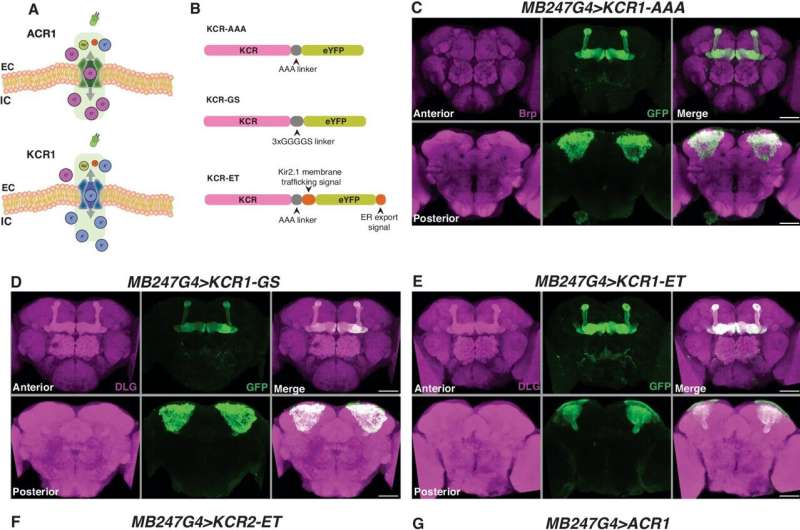Researchers from Duke-NUS Medical School have found that a new class of light-sensitive proteins are capable of turning off brain cells with light, offering scientists an unprecedentedly effective tool to investigate brain function. The study, published in Nature Communications, opens exciting new opportunities to apply optogenetics to investigate the brain activity underlying neurodegenerative and psychiatric disorders such as Parkinson’s disease and depression.
Optogenetics is a technique where specific cells are bioengineered to include light-sensitive proteins that act as switches, allowing researchers to precisely control the electrical activity of these cells. Neurons and nerve cells with optogenetic switches can be used to study how different cells participate in various brain circuits and behaviors.

